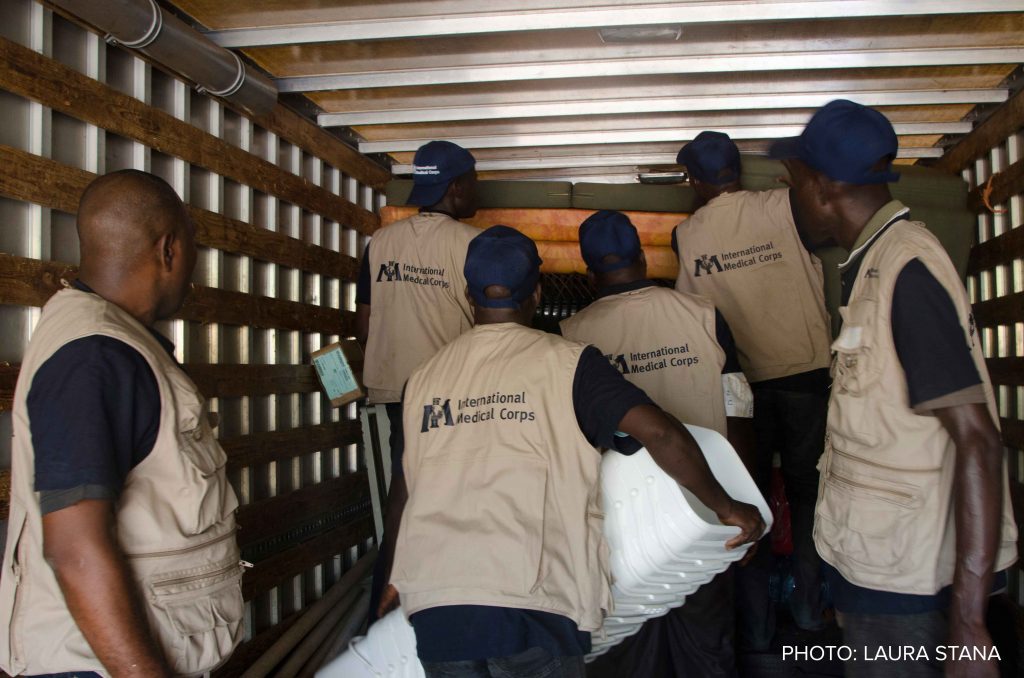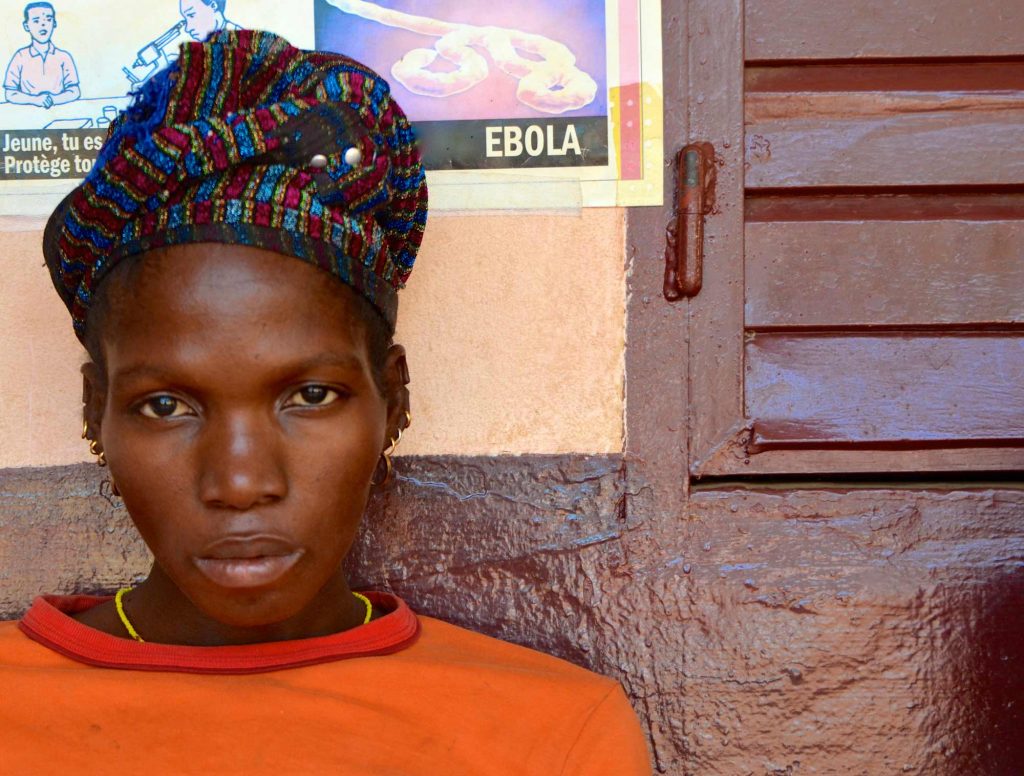It was a regular Wednesday afternoon and everyone at the International Medical Corps office in Conakry was involved in meetings, reports, and calls to ensure the post-Ebola program runs smoothly. Then, a call disrupted that routine at 4:23 pm: three Ebola cases were confirmed. Another two were suspected.
Health centers everywhere across Guinea remind patients of the Ebola outbreak that was so difficult to eradicate. Today, the humanitarian community and the Ministry of Health are fighting against it once again.
After a two-year battle with Ebola that sickened and killed thousands, it was news that would make many go silent, unsure of how to react. Not our staff though. We get ready to respond.
International Medical Corps has four Rapid Response Teams (RRTs) comprised of 14 to 16 staff each who are currently deployed in communes across the capital of Conakry. Additionally, 29 members drawn from these teams and a fleet of two ambulances and four pick-ups are ready to deploy anywhere in the country within 24 hours. This team is composed of three doctors, 12 hygienists, four psychosocial officers, two community engagement officers, three ambulance drivers, and five pick-up drivers.
Each RRT mission entails rigorous preparation. To make sure we can mobilize resources fast, all required materials have been prepositioned, staff earmarked for deployment, and Standard Operating Procedures adopted. Despite preparatory measures, challenges prevail. From logistical to social hurdles, our team has to overcome them in 24 hours.
For instance, N’Zérékoré, the area where three new Ebola cases had been confirmed and two suspect cases are being monitored, is where the West Africa epidemic started, and is about 354 miles (569 km) southeast of Conakry. It takes 24 hours to reach by road.
N’Zérékoré also hosts one of the most reluctant populations to health-seeking behavior: in September 2014, eight aid workers were killed with stones near the city of N’Zérékoré, while attempting to raise awareness on Ebola. In a nutshell, N’Zérékoré is one of the hardest-to-reach and yet most resistant areas to change in Guinea.
Regardless of these difficulties, International Medical Corps is ready to respond. Right after receiving the call announcing the potential reemergence of the epidemic, the country team convened in the Conakry office. Mounting the response required the coordination of multiple departments with the RRT taking the lead. Drawing on technical expertise to have everything prepared to the utmost detail is what makes the difference in emergencies.
At 6 pm on Wednesday night, our logistics team was already prepositioning all items necessary for rapid release the following morning. Exhaustive manual checking of each item was paramount. Any error in this response can be fatal: missing gloves, masks, overalls or any other single personal protective equipment would expose the RRT personnel to Ebola.

While the team at the warehouse was getting ready for the next day, all responders received a call to alert them for potential imminent deployment. At the same time, the RRT Coordinator ensured maximum confidentiality of these communications to avoid raising panic in the event that the two Ebola cases would not become officially confirmed. Twenty-nine RRT staff were now ready to depart for N’Zérékoré, with their one-week essentials packed neatly together in a small bag.
At the office, calls were placed to reserve a special flight for our team. Furthermore, plans were finalized to send a convoy of two ambulances, four rapid response pick-up trucks, and a 10-ton truck loaded with pharmaceuticals, personal protective equipment, and non-medical items.
Among other articles, the truck contained two large tents to ensure gender segregation between male and female patients, four smaller tents to accommodate storage and screening of patients, and a 2.5 kilowatt generator. The truck was equipped with all materials required to set up a Rapid Isolation Unit with an eight-person bed capacity that would remain functional on a 24/7 basis for the five-day emergency scenario.
In the end, the scenario was explored, but not enacted. At 9 am this morning, the National Coordination for the Eradication of Ebola and humanitarian partners decided to respond via various agencies already located in immediate proximity to N’Zérékoré. However, in our warehouse preparations for a potential deployment had been ongoing since early morning. At our office in Conakry, the RRT team had been briefed about the action and remains on standby for deployment should the request be made for additional support in N’Zérékoré and beyond.
As Ebola is resurfacing today, International Medical Corps remains prepared to respond to ensure the safety of the Guinean population in the most remote corners of the country. Even in what is regarded as the post-Ebola context, the RRT still conducts weekly simulations of patient extractions to remain prepared for a real intervention. We continue to make sure that we have the internal capacity to be the first there, no matter where. We are always ready to respond, as we were on March 18th.
